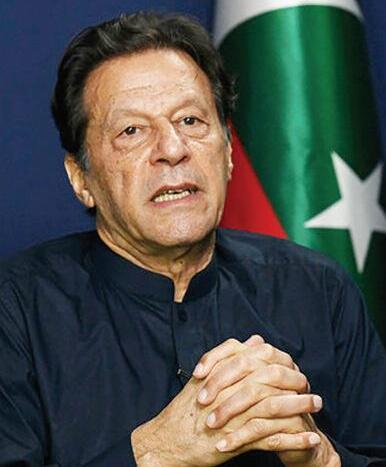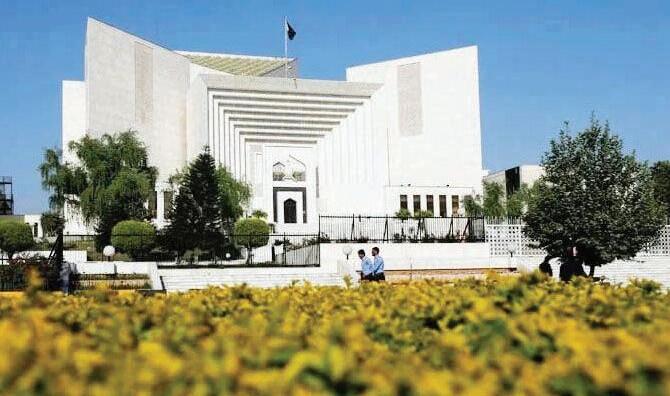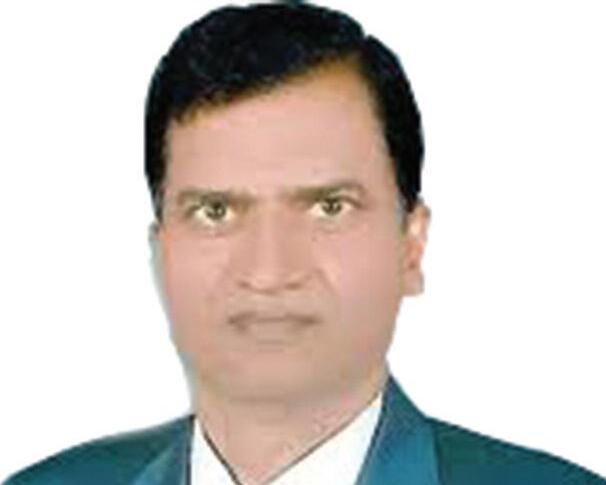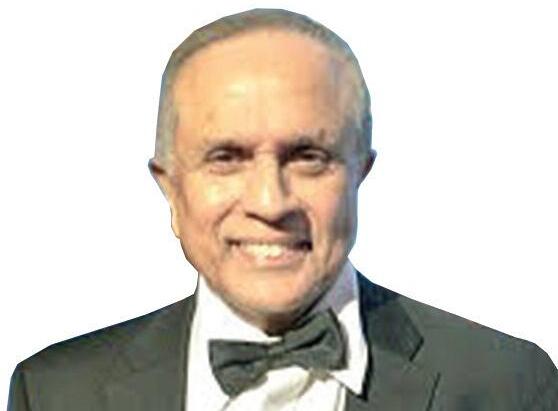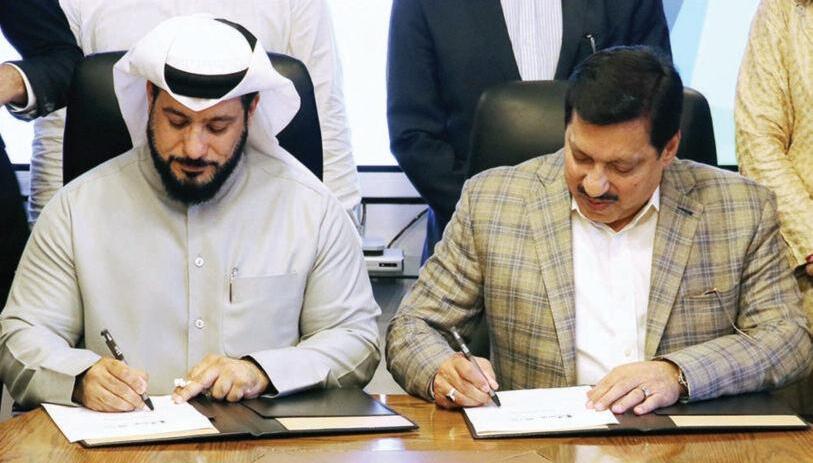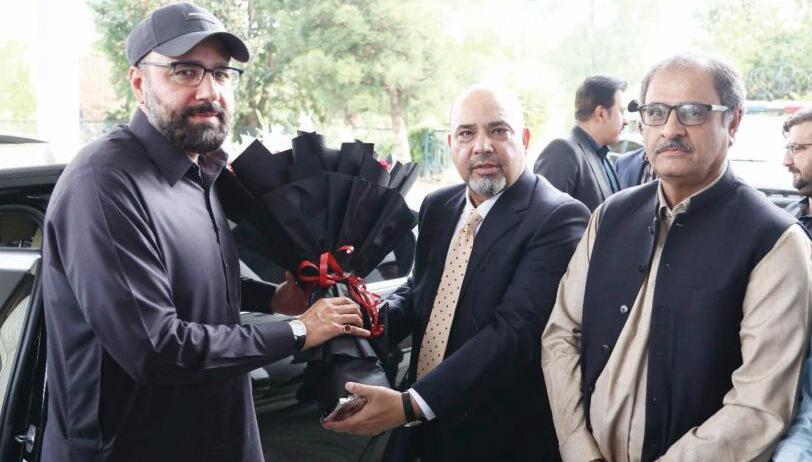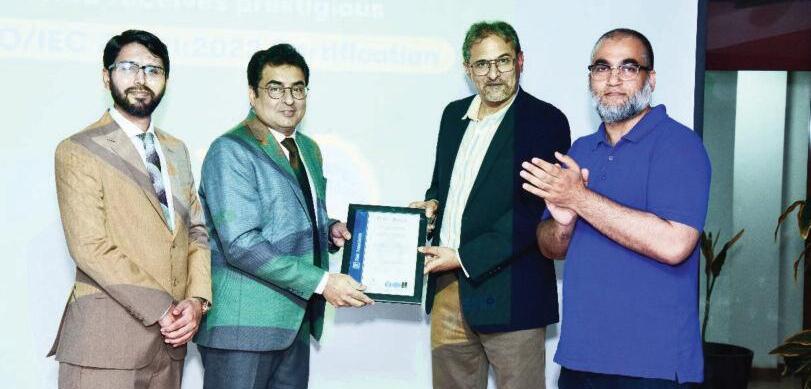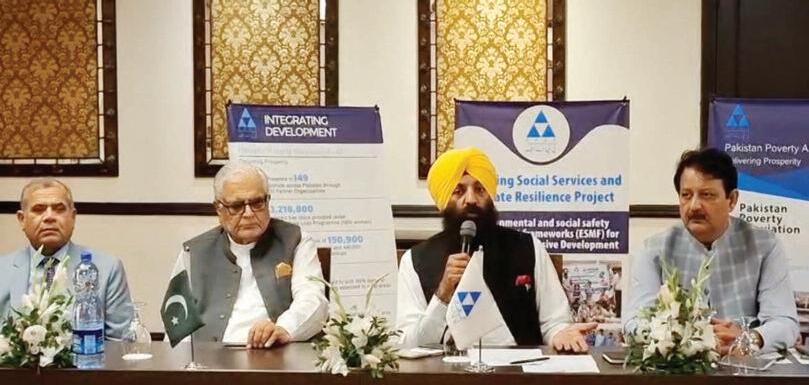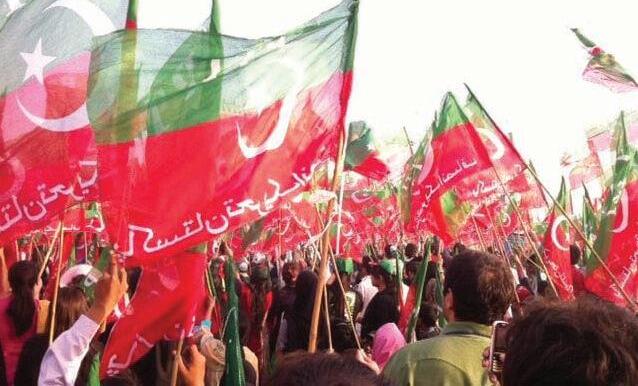Turkiye, Uzbekistan, Belarus, Iran, Kyrgyzstan, India and others
PM Shahbaz arrived in Kazakhstan’s capital of Astana on Wednesday for a twoday official visit representing Pakistan at the SCO meetings where leaders and diplomats from countries including China India Turkiye Iran Azerbaijan and Kyrgyzstan have gathered to discuss economic and security cooperation
The prime minister address encompassed all major regional and international issues including terrorism and extremism Islamophobia instability in Afghanistan poverty climate change regional connectivity, and resolution of disputes
He also felicitated Chinese President Xi Jinping on assuming the SCO chairmanship for 2024-25 and expressed confidence that under his visionary leadership the SCO would continue to grow and prosper
He told the international gathering that Pakistan aligned itself with socioeconomic and security objectives of the SCO as the country s association with the Organization went back centuries
He said during 23 years the SCO had established itself as a credible and effective transregional organization
He said contemporary realities of globalization and interdependence necessitated working together and joining hands for a secure, peaceful and prosperous future for our people SCO leaders have repeatedly under-
The prime minister said that Astana held significance for Pakistan where the country had formally joined the SCO in 2017 and congratulated Belarus for being the newest member
Terrorist commander killed, 7 others injured during Diamer IBO: GB interior minister
be noted that the security forces have intensified its operations nationwide in response to an increasing militant threat Although the affiliation of the killed terrorist remains unknown, the majority of attacks in the country’s northern areas, especially near the Afghanistan border are typically executed by the Tehreek-i-Taliban Pakistan (TTP)
scored the importance of investing in connectivity in the SCO region through transport corridors and reliable supply chains
Promoting use of national currencies within SCO can help avoid international financial shock Pakistan supports the proposal of an SCO alternate development fund mechanism to give impetus to various stalled initiatives he remarked
Highlighting Pakistan s ideal geostrategic location the prime minister said the China-Pakistan Economic Corridor (CPEC) – a flagship project of the Belt and Road Initiative (BRI) – also supplemented the SCO vision of regional connectivity and economic integration
Coming to the climate change challenge he called for a collective and urgent global response and reiterated Pakistan s commitment to working for a sustainable and nature-positive world
He told the gathering of SCO leaders
SC suspends LHC decision, ECP
notification on tribunals’ for mation
The Supreme Court (SC) on Thursday suspended the decision of the Lahore High Court (LHC) and the Election Commission of Pakistan (ECP) notification regarding the establishment of election tribunals in Punjab Besides, the apex court also dismissed PTI leader Niazullah Niazi’s objection to the inclusion of Chief Justice Qazi Faez Isa in the bench hearing the case on the formation of election tribunal A five-member larger bench, headed by Chief Justice Isa, heard the Election Commission’s appeal against the Lahore High Court’s decision on forming election tribunals
The hearing however commenced with a heated exchange between CJ Isa and PTI lawyer Niazullah Niazi
Niazi objected to the inclusion of the CJ in the bench a motion swiftly dismissed by Chief Justice Isa
Why not refer Niazullah Niazi s case to the Pakistan Bar Council? Are we here to be insulted? Enough is enough, CJ Isa remarked adding, “We are aware of your political affiliations and will not tolerate continued contempt of the judiciary This must end
CJ Isa emphasised that the authority to form benches now lies with the Practice and Procedure Committee, marking an end to the era when the CJ had that prerogative
Niazi, alluding to Imran Khan, stated, The one in jail objects that his election symbol was taken away ” In response CJ remarked “We provided video link facilities from jail and no objections were raised at that time Ali Zafar did not raise any objections in the intra-party election case either This defamation of institutions must stop
Headlines in newspapers question how the bench was formed The era of popular decisions is over; now the committee has the authority to form benches Justice Jamal Khan Mandokhail further added, “Courts do not operate based on public wishes ”
CJ Isa then asked the ECP lawyer regarding how many tribunals were needed
The lawyer replied, We need nine judges We have no objection to consultations, but there should
be a balance between dictation and consultation Justice Aqeel Abbasi inquired about the meaning of balance suggesting that two judges could be chosen by the ECP and two by the High Court The lawyer emphasized the need for meaningful consultation and requested the suspension of the High Court’s decision to facilitate this process
The Supreme Court suspended both the Lahore High Court s single bench decision to form eight election tribunals and the ECP s notification dated April 26
The court ordered that meaningful consultations between the CJ of the LHC and the Election Commissioner take place following the appointment of the new Chief Justice
The SC then adjourned the hearing for an infinite period
S C O s i d e l i n e s
TH E annual Shanghai Cooperation Organization
Summit proved an opportunity for Prime Minister Shehbaz Sharif to engage in one of the less well-known aspects of these occasions, sideline summiteering On Wednesday his first engagement after arrival in Astana was a meeting with Russian President Valadimir Putin It is worth noting that Mr Sharif s previous meeting with Mr Putin was at the Samarkand Summit Thus Mr Sharif has managed to engage with Mr Putin without either himself going on a bilateral visit, or without hosting him There are two broad dimensions to the relationship with Russia: it is something China looks upon favourably, and it is something that makes India worried Mr Sharif ’s suggestion of increased trade and a revival of barter, was designed to overcome US barriers to Russo-Pak trade because of the war in Ukraine, and shows once again Mr Sharif ’s conviction that relationships depend on trade It also showed something of the state of the economy
His speech to the Summit itself expanded on this theme and also touched on the crucial role China’s BRI was playing, and how regional terrorism had to be eliminated to ensure that all SCO members could become wealthy and prosperous His remarks were also a reference to the original purpose of founding the SCO, which was to provide another option, apart from subservience to the USA to provide security to a region affected by the Afghan conflict
That conflict came up agaIn, not just because of the Summit but also because there was another round of talks on Afghanistan Notice must have been taken in Astana of how these talks were attended by the Taliban government rather than civil-society organizations and it must have been noted that the Taliban still came under withering criticism for their treatment of women Mr Putin should realize his image problem and China must also engage in soul-searching about the role it should be playing Afghanistan should free itself mentally of all constraints, which will include abandoning positions more in line with cultural norms rather than the Quran and Sunnah The countries at Doha seemed confused art how to deal with the Taliban It is be hoped that the Astana Summit produces more clarity so that the when it s Pakistan s turn to host the SCO Summit later this year, in October, this particulate matter can be sorted out Afghanistan is a small country but so centrally placed that the plans for the prospirity of the entire region depend on its being settled

Dedicated to the legac y of late Hameed Nizami Arif Nizami (Late)
L a n g u a g e s a n d l a n d s
P CM Ali Amin Gandapur has not just come up with a plan for the division of the province but has gone ahead with its implementation and appointed an Additional Chief Secretary for the area, with a mandate to develop a separate secretariat
This seems a version of the PTI experiment with a South Punjab Secretariat during its tenure, even though that could be attributed to an already existing demand for the bifurcation of Punjab and the creation of a separate Seraiki province However it should be noted that there is no sub-provincial separatist movement which has to be satisfied
It is possible to see two distinct, virtually opposing, strands of linguistic separatism in the areas which have been designated with Dera Ismail Khan division being home to Seraiki most akin to the Derawali spoken in Dera Ghazi Khan and counted as a dialect of Seraiki (assuming Seraiki is considered a separate language, and not a dialect of Punjabi) However, since Pashto is taught in the government schools, Seraiki would be diglossic with Pushtu The division has been given a substantial monolingually Pushtun population in the shape of the districts of South Waziristan Upper and South Waziristan Lower which until recently formed the South Waziristan Agency
Similarly, while there are some speakers of Kohati, a Hindko sub-dialect, in Kohat, the main city of Kohat division, in addition to the districts of Kohat, Kurram and Hangu (the latter two carved out of the original Kohat district inherited at Partition) the former tribal agencies of Kurram and Orakzai have also been tacked on as districts Therefore the division overwhelmingly speaks Pushto In the Bannu division, apart from Bannu and Lakki Marwat districts, where some Seraiki is spoken, the purely Pushtun districts of North Waziristand Upper and North Waziristan Lower have been added It should be noted that while some Hindko dialects are included in the new administrative unit along with the Seraiki of Dera Ismail Khan the main Hindko-speaking areas, Hazara division, and Peshawar city, have not been included There is also the question of whether Hindko is a dialect of Punjabi, a sub-dialect of Potohari (a dialect of Punjabi) or a language in its own right If it is a dialect of Punjabi it might have some future clumped with Seraiki but if a separate language that makes for a trilingual situation in the new unit Hindko, Seraiki and Punjabi are similar, but that is because they are all Prakrits, ‘local languages’, which developed out of the overarching ‘Sanskrit’’
Urdu is a Prakrit being along with Hindi the main descendant of Sanskrit itself though with a greater overlayer of Arabic and Persian vocabulary and being written in the Arabic script Among the other Pakistani languages, Sindhi is also a Prakrit, part of a linguistic continuum that ex-
B u s t i n g R AW - F u n d e d T T P - B L A N e x u s
TH E recent arrest of high-value terrorists including the main commander of the Tehreek-e-Taliban Pakistan (TTP) Shura Nasarullah alias Maulvi Mansoor marks a significant milestone in Pakistan s ongoing battle against terrorism This accomplishment by Pakistani intelligence agencies has shed light on the severity of the brewing security crisis,
have unequivocally exposed the TTP’s designs to expand its terror networks in Balochistan The federal cabinet s formal approval of Operation Azm-i-Istehkam further emphasizes the importance of this mission The eye-opening confessions of TTP commander Nasarullah have revealed several critical points that merit extraordinary attention
First it has become evident that banned terrorist groups are exploiting safe havens in Afghanistan to launch attacks against Pakistan This reality poses a direct threat to Pakistan s national security Second, the Afghan Taliban s government has failed to suppress these terrorist groups Instead of addressing Pakistan’s legitimate security concerns the Taliban’s blatant support for anti-Pakistan terrorists presents a clear and present danger to both national security and fragile bilateral relations The provision of safe havens and logistical support to these groups by IEA indicates a troubling alignment of interests that undermines regional stability
One of the most astonishing revelations from Nasarullah’s confessions is strategic cooperation between TTP and Baloch separatist terrorists Despite their wide ideological gap the collaboration between these groups suggests the involvement of common handlers orchestrating a fusion of religiously misled extremists and ethnically motivated separatist terrorists This
alliance aims to dislodge the writ of the state and create chaos in Pakistan The prolonged inaction of IEA against anti-Pakistan proxies further complicates the regional security matrix Nasrullah’s disclosures implicated India’s RAW in supporting terrorist groups for strategic gains He revealed multiple meetings between TTP leader Noor Wali and BLA Majeed Brigade militant Bashir Zeb with RAW officials in Kabul This collaboration underscores India’s role in destabilizing Pakistan through proxy warfare The involvement of RAW in facilitating these terrorist networks is a stark reminder of the external threats Pakistan faces The confessions have also highlighted internal divisions within TTP, particularly regarding the unnatural alliance with the BLA According to Nasarullah, TTP commander Noor Wali has been exploiting jihad terminology and using non-Mehsud Pashtun foot soldiers as fodder in suicide attacks
The masterminds hiding in Afghanistan aim to weaken Pakistan s state apparatus by continuously targeting armed forces and LEAs These terrorists are committed to creating anarchy, chaos, and instability within Pakistan
The recent surge in terrorist attacks in KPK and Balochistan aims to sabotage CPEC and undermine the overall stability of the country Peace restored through innumerable sacrifices cannot be left at the mercy of foreign-sponsored terrorists
To effectively combat terrorism at national level, Pakistan must seek support from all segments of society The formulation of a rehashed counter-terrorism (counter-terrorism) strategy is crucial and requires broad political consensus
The Pakistan Army continues to play a central role in this complex war against terrorism However, all state institutions, including the police, judiciary, legislature, political parties, and media, must play proactive roles in supporting counter-terrorism efforts
The swift conduct of IBOs in KP which successfully neutralized terrorists involved in
tends all the way across the Indo-Gangetic plain down to Bengal However Pushro and Balochi are not Prakrits, but Indo-Iranian languages, cognate to Persian Therefore, the new administrative unit may be linguistically explosive, in that it might provoke a subnational separatist movement similar to that in the Punjab for a Seraiki province which was on offer in the shape of the South Punjab secretariat
Actually the Seraiki province in Punjab is handicapped by being a movement where a large number actually call for two provinces,because the former state of Bahawalpur, now a division, whose three districts have been left unchanged from the West Pakistan era according to some should be a province in its own right not part of a Seraiki province This seems to fit in with the view that the civil divisions should become provinces After all the high court seem to have taken some preliminary steps, three of them establishing benches at some divisional headquarters The latest move also corresponds to some extent to the idea that the Tribal Areas not be merged into KP (as has been done) but form a separate province of their own This should also be seen alongside the view that the Pushtun areas of Balochistan should be separated to form a new province, not be merged into KP This means that Pakistan would have three Pushtun provinces out of six, as opposed to one out of four as at present This would have consequences for the Senate especially As can be seen Pushtun nationalism is probably more complicated than any other This does not factor in the fact that the city with the largest Pushru-speaking population is not Peshawar, but Karachi Then there is the issue of Afghanistan It is a Pushtun

heinous attacks highlights the superior intelligence capabilities and professional standards of Pakistani troops
The recent call by the PM to launch Operation Azm-i-Istehkam should be viewed as a strategic necessity rather than through a politicized lens Delays in consolidating counter-terrorism efforts could be detrimental to national stability
According to National Action Plan provincial governments play a crucial role in eradicating terrorism and extremism National security is a shared responsibility between federal and provincial governments The disappointing response of opposition predominantly PTI on the issue of counter-terrorism operations serves the purpose of forces inimical to the stability of Pakistan While in power for the third consecutive term in KPK PTI should introspect its counter-terrorism failures at the provincial level Zero tolerance against terrorism is the right course to deal with this menace
The appreciable counter-terrorism track record of the armed forces and intelligence agencies reaffirms Pakistan s national resolve against terrorism It is high time for the international community to recognize and address the rogue activities of Indian state institutions supporting terrorism The prolonged inaction of IEA against anti-Pakistan proxies on Afghan soil could worsen the regional security matrix beyond imagination
The arrest of high-value terrorists including Nasarullah is a major achievement of LEAs It not only exposes an intricate web of terrorist networks but also highlights the external and internal challenges Pakistan faces The confessions have provided critical insights into TTP’s operations, their alliances with Baloch separatists and support they receive from India and elements within IEA
Pakistan s resolve to combat terrorism remains unshakeable but it requires a cohesive national strategy and support from the international community The Operation Azm-i-Istehkam underscores the urgency of consolidating counterterrorism efforts National security is a shared responsibility and all segments of society must play their part in defeating the menace of terrorism The sacrifices made to restore peace must not be in vain, and the state must continue to send a strong message to all adversaries: Pakistan stands united against all forms of terrorism
The writer is expert of strategic affair and tweets @asad355
PakistanÊs resolve to combat terrorism remains unshakeable , but it requires a cohesive national strategy and suppor t from the international community. The Operation Azm-i-Istehkam underscores the urgency of consolidating counter-terrorism effor ts. National security is a shared responsibility, and all segments of society must play their part in defeating the menace of terrorism The sacrifices made to restore peace must not be in vain, and the state must continue to send a strong message to all adversaries: Pakistan stands united against all forms of terrorism
to censor the said speech Apart from these accounts, the Quaid’s biographer, Stanley Wolpert, has also discussed the speech in detail in his book Jinnah of Pakistan “What was he talking about? Had he simply forgotten where he was? Had the cyclone of events so disoriented him that he was arguing the opposition s brief? Was he pleading for a united India on the eve of Pakistan ? The fact of the matter is that the Quaid was analysing the events at the end of an exercise What else he could have said on that occasion, when Pakistan was coming into being and its two major provinces, Punjab and Bengal, were experiencing a bloodbath? Besides, communal killings were taking place across India What was the way to stop these communal riots and pacify the non-Muslims living in Pakistan on the eve of independence? The Quaid said what any statesman of his stature would have said
makes errors Also don t hesitate to seek
one s ability to form healthy relationships and contribute to society
EASTERN PHILOSOPHIES: BUD-
pendently of societal expectations
B MODERN CHALLENGES:
therapy or counseling if needed In addition professional support can provide tools and techniques to improve self-esteem
The impact of Self-Love includes:
SE L F-L O V E is a crucial aspect of personal well-being and mental health It involves recognizing our worth taking care of ourselves and treating ourselves with kindness and respect The key components and strategies for fostering self-love include:
SELF-AWARENESS: Recognising our strengths and weaknesses with values that make us happy
SELF-ACCEPTANCE: Accept our self as we are, without trying to change to meet others expectations and embrace our imperfections and understand that nobody is perfect
SELF-RESPECT: Set boundaries to protect our emotional well-being and don t tolerate mistreatment or disrespect from others
SELF-CARE: Prioritize our physical, emotional, and mental health engaging in activities that rejuvenate and nourish Replace negative thoughts with positive affirmations and be kind and compassionate to our self especially during tough times
MINDFULNESS AND MEDITATION: Practice mindfulness to stay present and connected with our self and use meditation to calm our mind and increase self-awareness Pursue hobbies and interests that bring for us joy and fulfil continuously learn and grow setting personal goals and celebrating achievements
Keep a gratitude journal to focus on the positive aspects of our life and regularly reflect on what we are thankful for Identify and limit exposure to people or situations that undermine our self-worth and let go of past mistakes and understand that everyone
IMPROVED MENTAL HEALTH: Reduced anxiety depression and stress levels
BETTER RELATIONSHIPS: Healthier interactions with others built on mutual respect and understanding
INCREASED RESILIENCE: Greater ability to cope with challenges and setbacks
ENHANCED LIFE SATISFACTION:
Overall happiness and contentment with life Self-love is a journey that requires continuous effort and commitment By integrating these practices into our daily life, we can build a strong foundation of self-worth and well-being
The concept of self-love has evolved significantly over time influenced by various cultural philosophical and psychological perspectives The brief history and background on the development of self-love include:
ANCIENT PHILOSOPHIES:
ANCIENT GREECE: SOCRATES: Promoted the idea of knowing thyself as a foundation for a virtuous life Self-awareness was seen as crucial for personal development and ethical behaviour
ARISTOTLE: Introduced the concept of “philautia” (self-love), distinguishing between positive and negative forms Positive self-love according to Aristotle was about self-respect and self-care contributing to
DHISM: Emphasizes self-compassion and mindfulness The teachings encourage individuals to treat themselves with the same kindness and understanding they would offer to others
CONFUCIANISM: Stresses the importance of self-cultivation and moral development with an emphasis on self-respect and maintaining personal integrity
RELIGIOUS PERSPECTIVES:
CHRISTIANITY: Historically, Christianity emphasized humility and self-sacrifice sometimes viewing self-love as selfish or sinful However modern interpretations often encourage self-love in the context of recognizing oneself as a valuable creation of God, deserving of care and respect
recognizing and honouring
connection to the divine
PSYCHOLOGICAL DEVELOPMENT:
19TH CENTURY: Sigmund Freud: Introduced the concept of narcissism distinguishing between healthy self-love and pathological self-absorption Freud s work laid the groundwork for understanding the psychological dimensions of self-love
20TH CENTURY: HUMANISTIC PSY-
CHOLOGY: Figures like Carl Rogers and Abraham Maslow emphasized self-acceptance and self-actualization Rogers introduced the concept of unconditional
Self-love is a vital component of womenÊs empowerment and well-being By addressing historical and modern challeng es, women can cultivate a healthy sense of selfwor th and live fulfilling lives Encouraging self-love in women promotes resilience , confidence , and the ability to navigate lifeÊs complexities with grace and strength
Bangladesh’s Awami League no longer a par t y of the people
Money and muscle power have replaced people’s power in the AL’s operations. Except for a few at the top, par ty positions today are up for grabs by the rich and the corrupt
positive regard, and suggested individuals thrive when they are accepted and loved unconditionally MASLOW’S HIERARCHY OF NEEDS: Self-love and self-esteem are seen as essential components of reaching self-actualization, the highest level of psychological development
MODERN PERSPECTIVES:
POSITIVE PSYCHOLOGY: This field focuses on fostering positive traits and well-being Self-love is considered a critical element of mental health and overall happiness
CULTURAL SHIFTS: In recent decades, societal attitudes have shifted towards greater acceptance and encouragement of self-love
Movements such as body positivity and mental health awareness emphasize the importance of self-acceptance and self-care The rise of the self-help industry has brought self-love into mainstream consciousness with countless books workshops and seminars dedicated to helping individuals develop a healthy relationship with themselves Thus the concept of selflove has deep roots in various philosophical, religious, and psychological traditions It has evolved from ancient ideas of self-respect and moral integrity to modern understandings of self-compassion mental health and personal fulfilment
Self-love is particularly significant for women, given the unique challenges they often face in various aspects of life Historically and culturally, women have been subjected to societal expectations, gender roles, and stereotypes that can undermine their self-worth and self-esteem:
A HISTORICAL CONTEXT:
PATRIARCHAL SOCIETIES: Traditional patriarchal systems often limited women’s roles to domestic spheres with little recognition of their individual identities and aspirations This has historically impacted women s self-perception and self-love
FEMINIST MOVEMENTS: The rise of feminist movements, particularly in the 20th century, began to challenge these norms, advocating for women’s rights, equality, and empowerment Feminism has played a crucial role in promoting the idea that women deserve to love and value themselves inde-
BODY IMAGE: Media and advertising often promote unrealistic beauty standards leading to body dissatisfaction among women This can significantly impact selfesteem and self-love The body positivity movement has emerged as a counter-narrative encouraging women to embrace their bodies as they are and practice self-love
WORK-LIFE BALANCE: Women often juggle multiple roles including career family, and personal aspirations The pressure to excel in all areas can lead to burnout and neglect of self-care Emphasizing self-love encourages women to prioritize their wellbeing and set healthy boundaries MENTAL HEALTH: Women are more likely to experience certain mental health issues, such as depression and anxiety Social stigma and lack of support can exacerbate these conditions Self-love practices, such as seeking therapy and engaging in self-care activities are essential for mental health and resilience
C EMPOWERMENT THROUGH SELF-LOVE:
EDUCATION AND PERSONAL GROWTH: Encouraging women
for
ternational human rights and international humanitarian laws and may result in profit from such assistance Dr Ramzy Baroud a journalist and Editor of The Palestine Chronicle, told IPS the UN experts statement is important, as it highlights the complex role of the US in supporting sustaining and benefiting from the Israeli genocide in Gaza


TH E history of the Awami League (AL) which started off as the Awami Muslim League (AML) at 75 can be encapsulated under three headings: the AL at birth, the AL under Bangabandhu’s leadership and the AL with Sheikh Hasina at the helm From its birth in 1949 to our liberation in 1971 the AL can be credited with being either the author of or the main mover and participant in all democratic and cultural movements working to strengthen the demand for the rights of the Bangalees in East Pakistan No other party can claim to have singularly represented all our democratic aspirations as the AL during our days under Pakistan It was under Bangabandhu s stewardship that the AL expanded its appeal to the masses His Six-Point Programme galvanised the people as never before and hardened their resolve to fight for their rights Those of us as student activists who were witness to his meteoric rise, who had the privilege to hear his mesmerising speeches and saw firsthand how he unified the Bangalees, felt in our hearts that finally we had a leader who could realise the dream of our freedom The victory in the 1970 general election under Bangabandhu s leadership, was the AL s biggest, most sweeping and politically critical achievement in that period It was the precursor to our Liberation War That electoral victory gave the AL the legal moral and political right to speak on behalf of the people of East Pakistan and declare independence and start the armed struggle when genocide was imposed on our unarmed people The AL s leadership, the role of the Mujibnagar government and especially that of war-time PM Tajuddin Ahmad were remarkable Bangabandhu s brutal killing along with all members of his immediate family, save the two daughters our current PM and her sister was the most
tragic event that could have befallen us Of the AL s 75 years of existence the last 43 have been under Sheikh Hasina s leadership Since her return from exile in India in 1981, she has rebuilt the AL after it suffered from deep existential crises following the murder of Bangabandhu She has not only successfully re-organised and re-energised the party but also brought it to power in 1996, after 21 years of being in the Opposition She returned to power in 2008 and has continued till date
During her last 15 years of rule, she brought about remarkable advancement in the country s economic field However her grand success came with some very damaging costs A party in Opposition and the same party in power, especially when the stay is long, present two radically different pictures The AL that began as the voice of the people has now ended up being that of an individual From the smallest to the most significant policy decisions they are no longer the result of debates within its ranks, but personal choices of the leadership Elections, a crucial measure of judging how a political party is faring in the public eye is no longer valid in Bangladesh It has lost its fundamental ability to elect genuine representatives of the people due to both the ruling party s grip on all state institutions that guarantee free polls and the Opposition’s unthinking boycott of elections
As the AL celebrates 75 years of its existence there are many reasons for it to be proud But there is an equal number of reasons for it to be deeply concerned Money and muscle power have replaced people s power in the day-today operation of this party Except for a few at the top party positions today are up for grabs by the rich and the corrupt The victory of a large number of the AL s own disobeying candidates in the last election stands as proof of how corrupt the original selection process was The party today is its own judge and jury It is a typical example of a political party living in its own bubble And since it has monopoly control on all the levers of power the bubble as fragile as it is can also be dangerous This is so because the reality presented by the bubble can form the basis of decisions that can fatally harm us all The handling of the issues of corruption money-laundering misuse of power and especially that of defaulted loans and the treatment meted out to wilful defaulters cannot be but the results of living in a bubble
Mahfuz Anam is the Editor, The Daily Star
TH E S E companies must be named shamed boycotted and held accountable in every possible way They must understand that there are legal repercussions to their action
The US gun lobby justifies the unfettered American gun ownership in the US on a misguided premise: Guns don t kill people it s bullets that kill people
The accusations of genocide and war crimes in Gaza have been directed firstly, at Israel, for the killings of more than 37,700, mostly civilians, and over 86,000 injured, in retaliation for the 1 200 killed by Hamas last October according to estimates from Gaza health officials as cited by Cable News Network (CNN) last week
Secondly the blame is also squarely on the United States, the unrestrained supplier of arms, including the devastating 2,000-pound unguided bombs, to the Netanyahu government
But a group of UN human rights experts is now blaming a third force: US arms manufacturers who are accused of implicitly killing people along with financial institutions that fund most of these weapons suppliers
The transfer of weapons and ammunition to Israel may constitute serious violations of human rights and international humanitarian laws and risk State complicity in international crimes possibly including genocide the UN experts said last week reiterating their demand to stop transfers immediately
In line with recent calls from the Human Rights Council, the UN experts are calling for a halt to the sale, transfer, and diversion of arms munitions and other military equipment to Israel by US arms manufacturers – including BAE Systems Boeing Caterpillar General Dynamics Lockheed Martin Northrop Grumman, Oshkosh, Rheinmetall AG, Rolls-Royce Power Systems, RTX, and ThyssenKrupp
The experts say these defense contractors should also end transfers even if they are executed under existing export licenses
These companies by sending weapons parts components and ammunition to Israeli forces, risk being complicit in serious violations of international human rights and international humanitarian laws,” the experts said This risk is heightened by the recent decision from the International Court of Justice (ICJ) ordering Israel to immediately halt its military offensive in Rafah having recognized genocide as a plausible risk as well as the request filed by the Prosecutor of the International Criminal Court (ICC) seeking arrest warrants for Israeli leaders on allegations of war crimes and crimes against humanity
“In this context continuing arms transfers to Israel may be seen as knowingly providing assistance for operations that contravene in-
Quite often we call on demand and implore the US to end its support of Israel so that the genocide may come to an end The experts, however, are reminding us that the US involvement is not confined to that of the White House, and direct or indirect US military and logistical support to Israel” he pointed out
Indeed he said US support is channeled through multiple players those who manufacture transport assemble and maintain the weapons and munition a multi-billion-dollar military machine that has harvested the lives of tens of thousands of Palestinians
These companies must be named shamed boycotted and held accountable in every possible way They must understand that there are legal repercussions to their action, as they are complicit in the Israeli crimes against the Palestinians, said Dr Baroud, a Non-resident Senior Research Fellow at the Center for Islam and Global Affairs (CIGA)
These companies are as the experts said knowingly providing direct assistance to Israel in its genocidal war They are fully aware of the extent of these crimes as articulated in the South African case against Israel at the ICJ, and the call for arrest warrants by the chief prosecutor of the ICC
The next rational step is for these companies to be taken to task They seem to have no moral threshold Their quest for profits by far exceeds their concern that their weapons are killing thousands of children, women and civilians in Gaza, and throughout occupied Palestine They must face justice as participants in the Israeli genocide in Gaza, declared Dr Baroud Norman Solomon executive director of the Institute for Public Accuracy told IPS it s difficult to draw any clear distinction between the US government and the arms makers that sell to it The two are so intertwined that differentiating between them is often a distinction without a difference The revolving door for individuals in both directions places weapons executives in pivotal government positions and vice versa The magnitude of the military profits he pointed out, is overwhelming in the nation s political economy and culture The multibillion-dollar corporations that depend on selling weaponry to the government are directly participating in a routine process of literally making a killing on behalf of massive profit-taking
To call these firms defense contractors is a misnomer since what they sell has little to do with defense in any meaningful sense, he argued The stepped-up weapons sales and gifts to Israel are continuations of a partnership between the US government and arms suppliers with the purpose of aiding an ally and reaping still more massive profits In tandem the US government and the companies are providing Israel with the means to continue the mass murder of Palestinian civilians in Gaza The core of the problem is lack of democracy and vastly excessive corporate power” In moral terms the culpability is far-reaching Yet in a sinister way he said the military contractors are doing what capitalism provides
Dr rajkuMar Singh
CORPORATE CORNER


